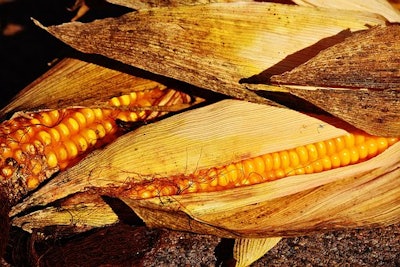
POET-DSM Advanced Biofuels, LLC, a joint venture of Royal DSM and POET, LLC announced Tuesday that it will pause production of cellulosic biofuels at Project LIBERTY and shift to R&D focused on improving operational efficiency.
The company says this step is a result of EPA challenges with the implementation of the Renewable Fuel Standard (RFS).
The joint venture will focus on R&D with the goal of improving mechanical reliability, creating additional technological efficiencies and licensing technology in countries which favorably support the use of low carbon fuels from crop residue and other biomass.
As part of this effort, the joint venture will use biomass stored on site or already under contract and will not purchase additional biomass at this time.
The team needed to sustain R&D efforts has been evaluated and the joint venture will move forward with a reduced headcount in February. From the very beginning, the team at LIBERTY have been pioneers, and both companies are grateful for their contribution to the effort. Without these individuals, significant progress in commercializing a new, lower carbon fuel would not have been achieved.
The RFS was created to solidify U.S. leadership in low-carbon fuels and drive investment and innovation as well as to make the US energy independent. It also offered new income opportunities for farmers improving the rural economy; created a use for crop residue; and encouraged commercialization of advanced biofuels that have 85-95% less greenhouse gas emissions than gasoline.
Project LIBERTY has contributed to RFS goals by commercially producing and selling cellulosic ethanol made from biomass, creating jobs and furthering the move to a low carbon economy in the U.S.
“We are grateful to President Trump for his support of biofuels policies, including year-round E15 and recent efforts to maintain the integrity of the RFS," says said POET’s Senior Vice President of External Affairs and Communications, Kyle Gilley. "But while the White House is pursuing policy proposals to help biofuels, tremendous harm has been done. Over the last three years, EPA management of the RFS has held back cellulosic ethanol advancement, hindered future agricultural markets for U.S. farmers, and undermined what the President has promised."
POET cites the following examples:
- The EPA has continuously implemented lower RVO levels for cellulosic biofuels, shrinking the market potential for this new technology.
- The EPA recently announced 31 new small refinery waivers, reducing the annual blending amounts below statutory requirements, causing a precipitous drop in D3 RIN values removing an incentive for purchasing the product and commercializing the technology.
- The EPA has blocked new cellulosic pathways by changing the approval mechanisms outside of the required legal processes, slowing the development and commercialization of processes that meet the intent of the RFS.
“Because of these policy changes, the economic landscape for cellulosic ethanol in the U.S. makes private and global investments in this technology more challenging," says President DSM North America Hugh Welsh. "As a result, our joint venture is responding by temporarily pivoting and focusing on R&D efforts to improve technological efficiencies and explore additional international licensing opportunities in countries that are not choosing oil over agriculture."
POET and DSM remain committed to our joint mission and will continue to build on the successes they have achieved. They continue to urge the EPA to follow the intent of the RFS, preserve US leadership in this critical effort, and provide certainty to public and private investors.

















